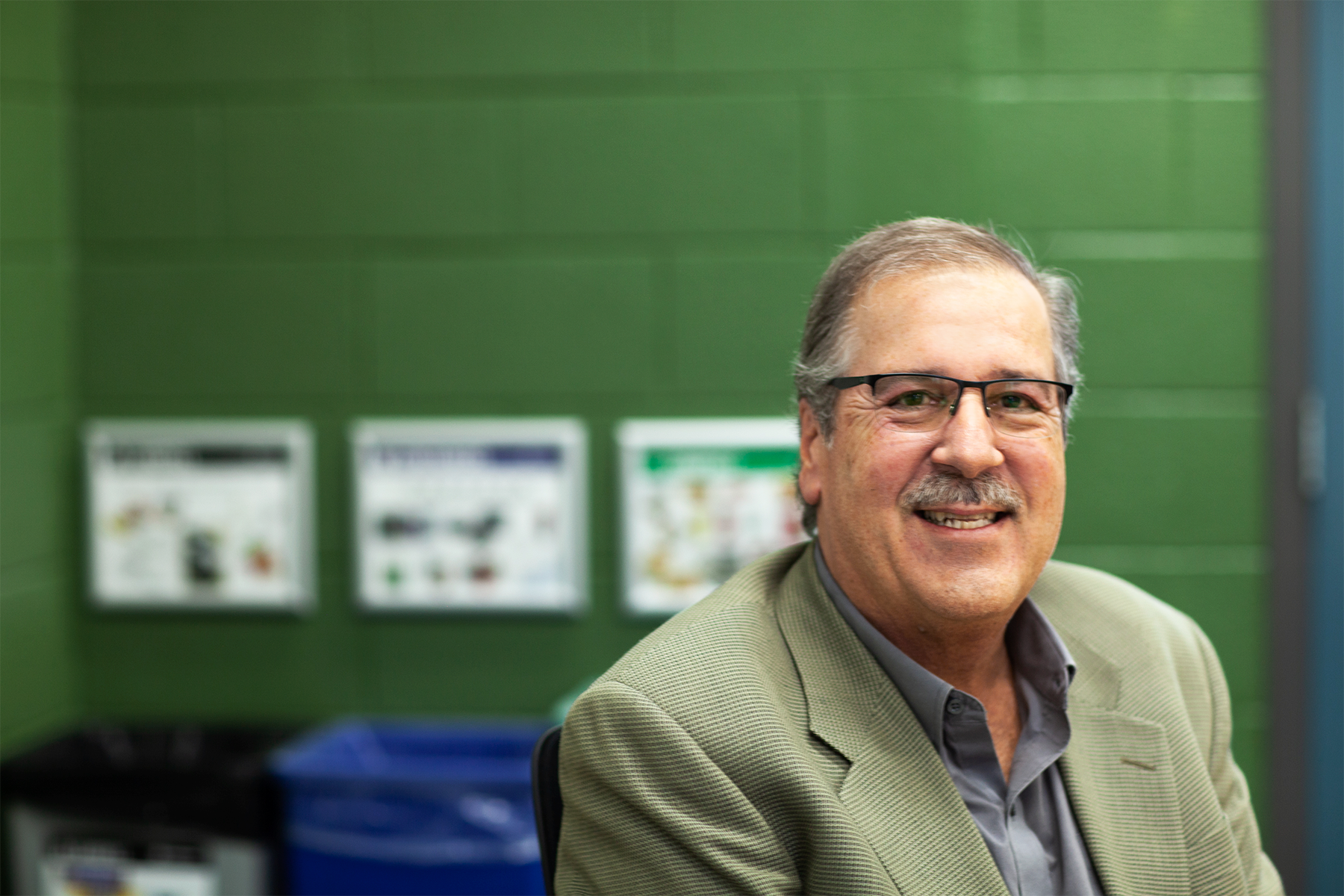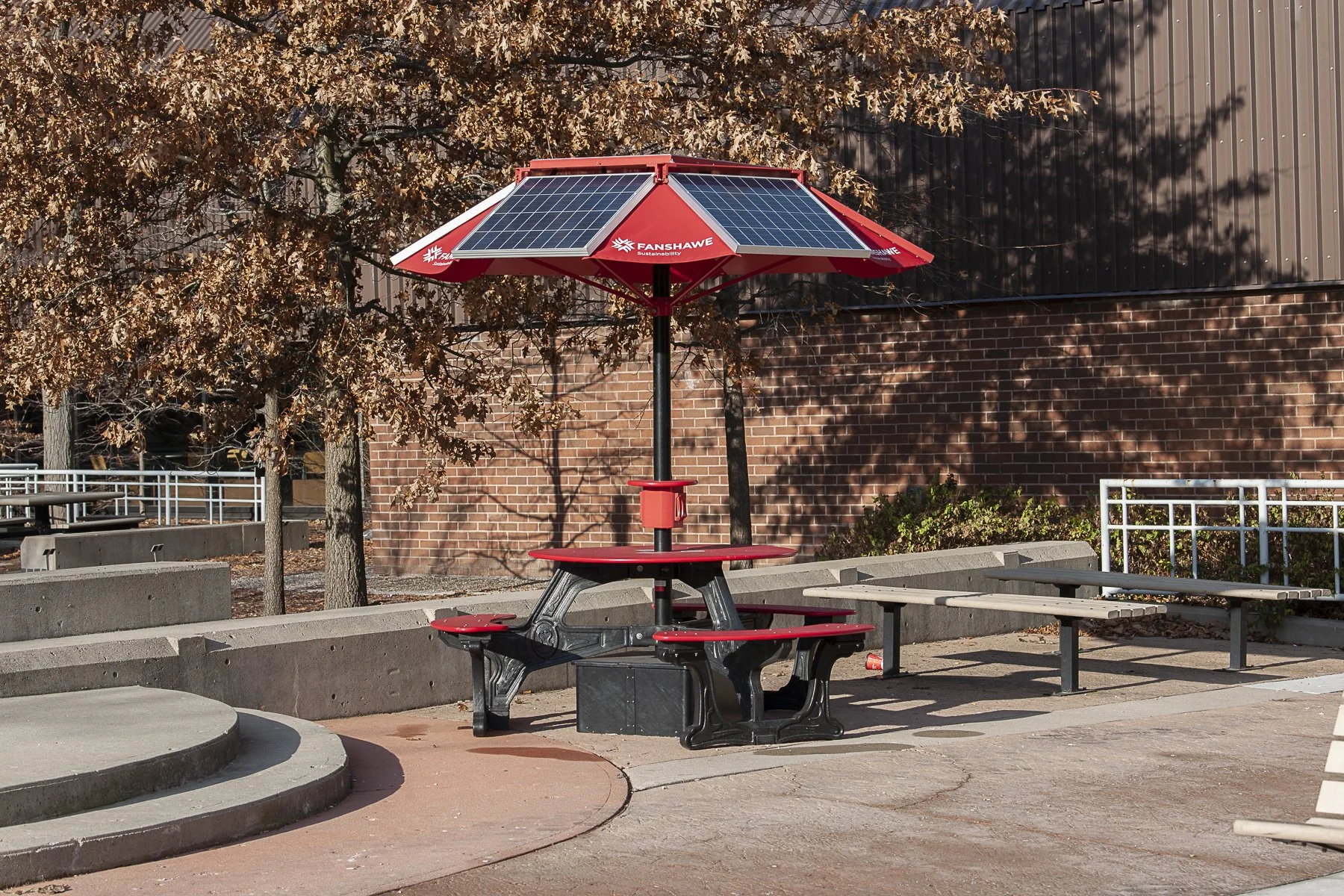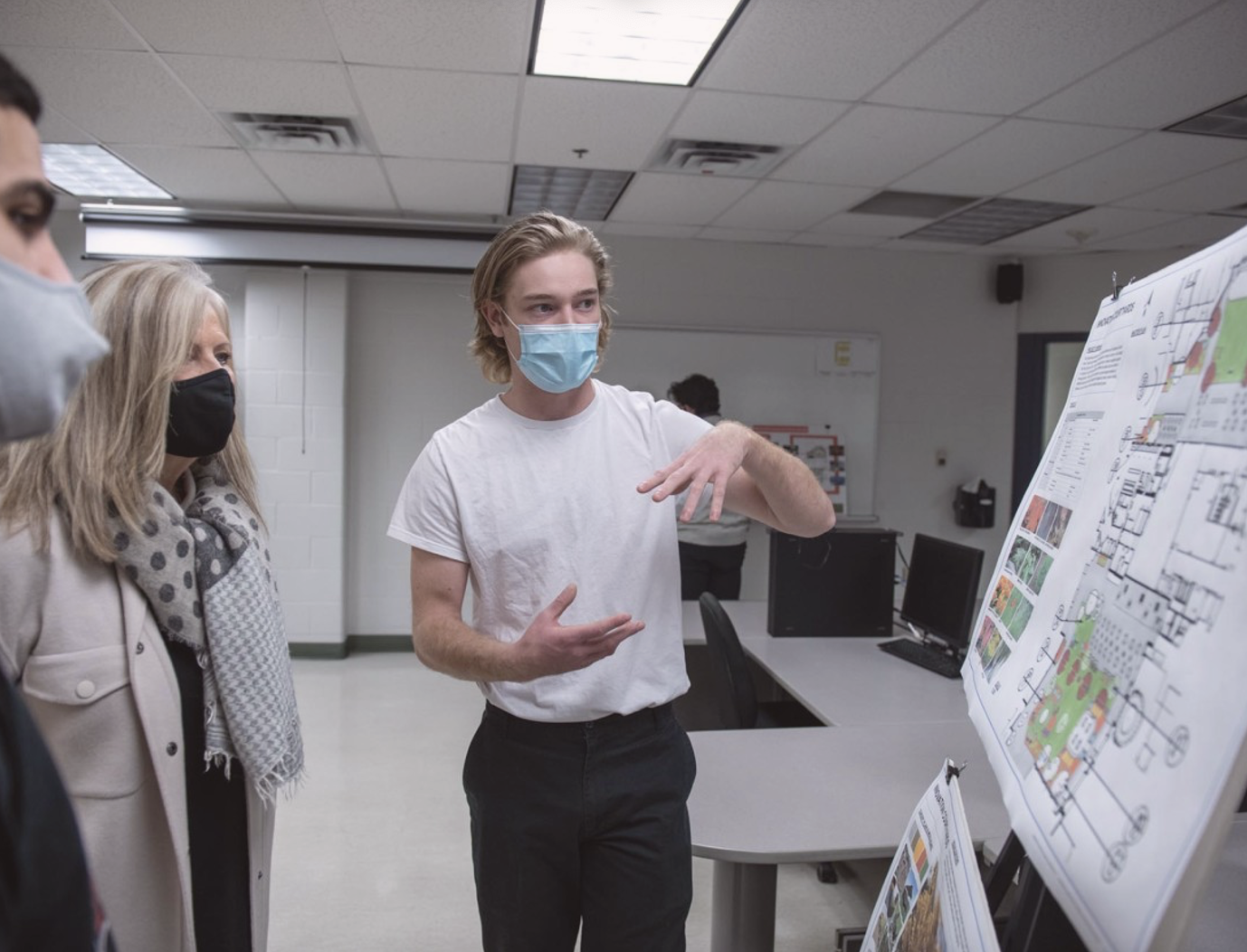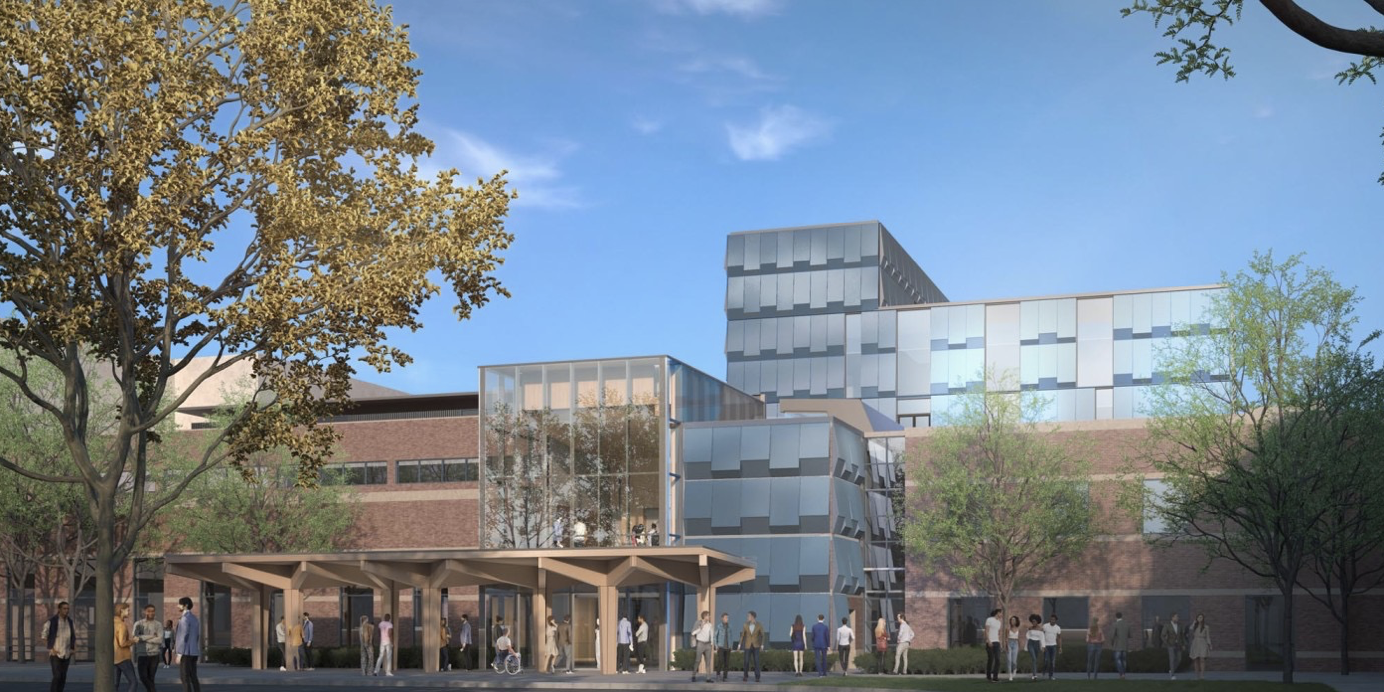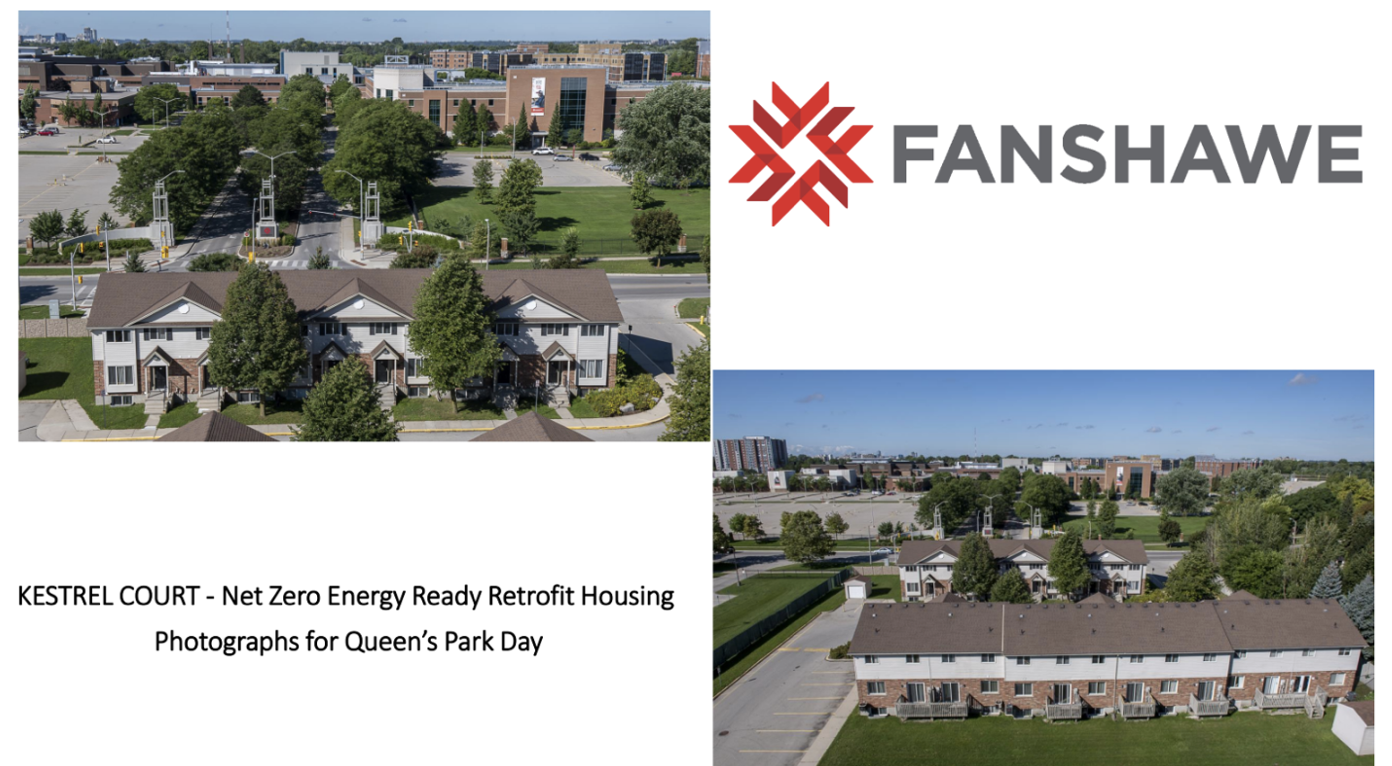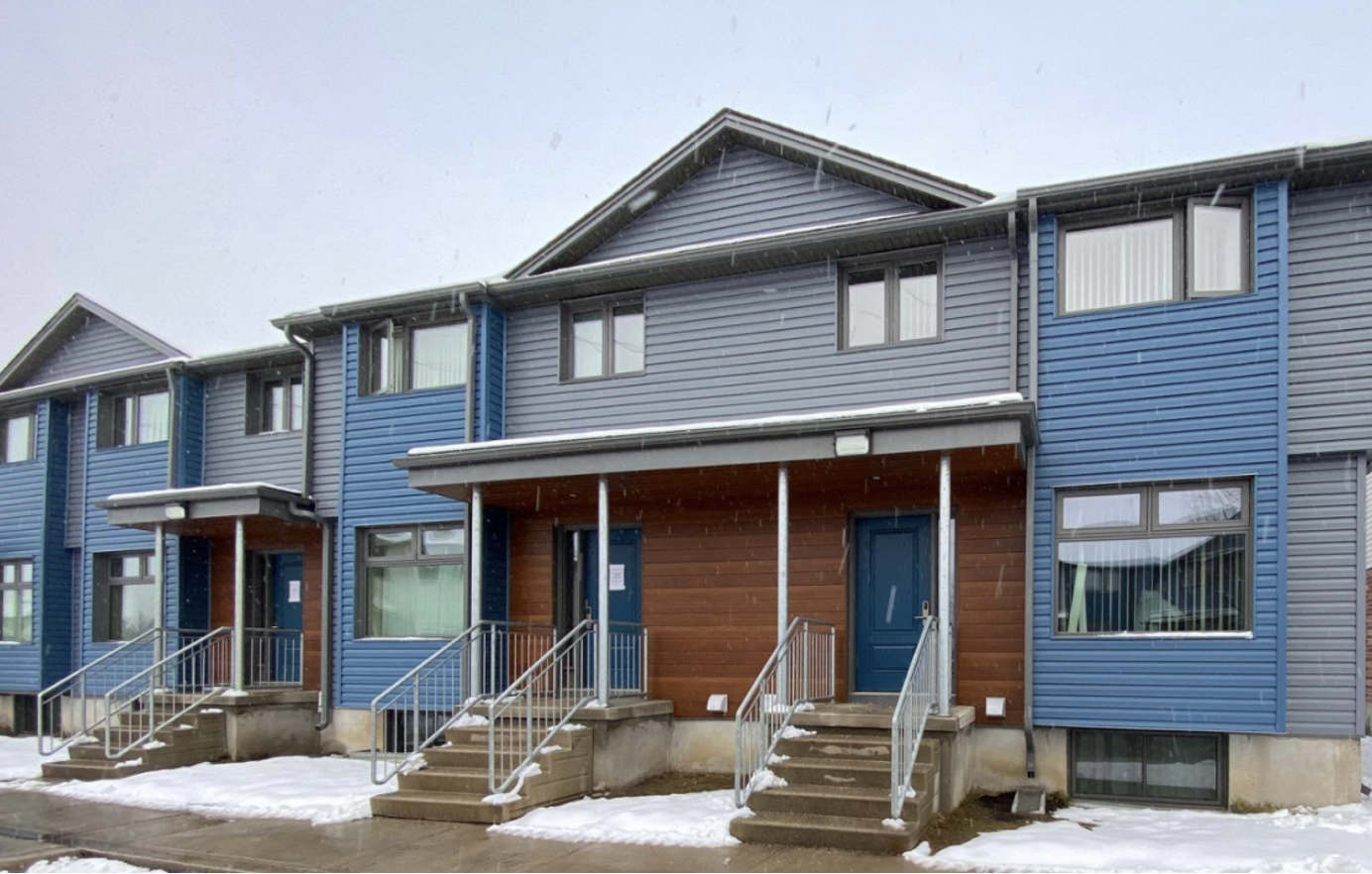People and Partnerships Drive Sustainability at Fanshawe College
Many academic institutions are enhancing their environmental efforts to meet greenhouse gas (GHG) reduction targets set out in the Paris Accord and become more sustainable overall. Sustainability requires creating a balanced approach to all aspects of campus life, from waste diversion and reducing energy use to retrofitting aging infrastructure, improving indoor air quality and embracing new technologies that help trim the consumption of resources.
People are an essential part of the Sustainability equation: different groups must work in tandem to do their part to protect the planet. In a large academic community like Fanshawe College, campus stakeholders at all levels must be focused, committed, engaged and motivated to understand what it means to be sustainable and incorporate more environmentally-friendly practices. There is also an ongoing need to build upon this foundation as technologies change and the call to action against climate change grows ever louder.
Fanshawe Sustainability
_
Fanshawe Sustainability is a department responsible for a wide range of endeavours on campus – and beyond. The College is a Canadian leader in advancing practices and policies to enhance Sustainability in its Corporate, Academic and Facilities operations. Fanshawe involves the campus community at all levels and in all Sustainability endeavours, incorporating educational opportunities for students and staff, wherever possible. Sustainability education is woven into the majority of their programs, with many faculty championing SDG topics in course material and assignments.
Mission and Vision for Fanshawe Sustainability
The Mission and Vision of Fanshawe College’s Sustainability department are both straightforward and ambitious in addressing the three pillars of sustainability: environmental, social and economic. The aim is to foster global citizenry, positive change, environmental leadership and greener buildings.
Professor Tom Davis, who is also on the Board of Governors, speaks about the special importance of Sustainability: “Fanshawe is an [Indigenous] temple in the woods. This name was selected to capture its mission of providing a place of learning in the city of London, better known as the Forest City.” He adds,
“Our values are focused on students, involving our communities, utilizing resources wisely, embracing change, and engaging each other.”
Partnerships Begin at Fanshawe – and Extend Into the Community
Taking action on greening the campus is not a one-person effort; everyone must be on board to work together in order to achieve key environmental goals.
Ivan Walker, Senior Manager of Facilities, Operations and Sustainability, praises the many partnerships that have developed and evolved under the banner of Fanshawe Sustainability. He says, “We have many, many different partners – from senior leaders to contractors, and then there are the students who are a massive source of information for us, including the technology and trades students and we’re trying to include as partners in experiential learning.”
“Student involvement in the drive for Sustainability is key”, says Tom Davis. The younger generation is highly motivated to learn more about climate change and solar power, in particular, and to act: “They love it, and they couldn’t get enough. And they want to pursue more of that.” In fact, out of 200 programs at Fanshawe, including a number that are connected to the trades, at least 150 are dedicated to environmentally-friendly curriculum and training in a wide range of fields.
Greenhouse Gas Roadmap and Action Plan
A major goal of Fanshawe’s Greenhouse Gas Roadmap and Action Plan is to reduce campus-generated GHG emissions by 30 per cent below 2013 levels by 2030, and by 80 per cent by 2050. Fanshawe’s Greenhouse Gas Roadmap and Action Plan includes four key elements:
Conservation and Demand Management
Space Optimization on Campus, and Net-Zero Buildings
Fleet and Facility Electrification
Renewable Energy
“These measures are essential to the Sustainability mandate at Fanshawe”, says Ivan Walker. In addition, the College has created community partnerships with the City of London, London Health Sciences, two London School Boards and several private companies to enhance conservation efforts across the city”, explains Ivan Walker, a Low Carbon Community strategy initiated in 2017.
The Sun Shines on Campus Sustainability
In 2018, Fanshawe’s first large solar array was installed on the roof of H building. It reduces the amount of energy purchased from London Hydro to run this building by 10 per cent – roughly enough electricity to power five households.
Another measure is the installation of solar walls on the outside of buildings B, C, D, R1 and R2. The new outer walls allow the sun to heat cold air from the outside that is used to ventilate the buildings, reducing the amount of gas required. These retrofits have proven successful: the solar walls offset approximately 1,500 MWH per year in energy, reducing GHGs by 285 tonnes per year (about an 8 per cent reduction in non-renewable energy use).
Courtyard D: A Solar Research Lab & Picnic Hub
Sustainability at Fanshawe also incorporates learning opportunities, particularly in the area of solar power generation; the use of campus solar technology is inspiring increasing numbers of students to pursue careers in the environmental field.
In D courtyard, in particular, solar projects are generating both power and student enthusiasm. A research solar array allows students in a variety of programs to collect data to design, manufacture, install and evaluate various renewable-energy generation and storage technologies and capabilities. The solar panels also heat water for occupants of the building, reducing the need to burn gas.
D Courtyard also features phone charging stations and one solar picnic table – the first in Ontario – where students can plug in their phones, tablets and laptops to charge. Two other tables are located in the SUB courtyard.
Solar Research Extends Beyond the Campus
Researchers in the College’s Centre for Sustainable Energy and Environments (CCSEE) have created a predictive model to help off-grid power producers decide when to bank their power and sell it back to the grid at peak times, when it is most needed. Three Fanshawe co-op students are studying Environment Canada’s predictive climate data with two professors to determine fluctuating energy costs and the demand for power. Funding for this project was provided by the Colleges Ontario Network for Industry Innovation (CONII) and the Natural Sciences and Engineering Research Council of Canada. For more information, visit https://www.fanshawec.ca/programs-and-courses/academic-schools/centre-research-and-innovation-cri/publications-presentations.
London Hydro, aware of the CCSEE research in this area, turned to Fanshawe College for guidance in this arena. The campus solar arrays are designed to serve as a model for London Hydro’s efforts to curb greenhouse gas emissions through greener forms of energy, and to find ways to ‘bank’ excess energy generated for later use by hydro customers. Thanks to these studies, the local utility will be in a better position to manage energy load and demand in the future, especially as the climate changes and we face more and more extreme temperature fluctuations.
Innovation Village
The solar research is part of Innovation Village, a testing ground for clean energy technology. Tom Davis believes we have all the technology and knowledge we need to get to net zero. He states emphatically, “Everything we need to save the planet is already here.”
Kestrel Court Student Housing: A Model for Sustainability
Perhaps the most successful of Fanshawe’s sustainability projects to date is the Kestrel Court net-zero student residence building. The retrofits targeted 25-year-old townhouses, which now have upgraded building components and a new exterior, funded through Natural Resources Canada’s Green Infrastructure – Energy Efficient Buildings Program.
The purpose of the retrofits is to reach Net Zero Energy Ready performance through reducing energy use by at least 70 per cent. About 150 Fanshawe students have been involved in various aspects of the project, and have completed assignments in Building Information Modelling software related to Kestrel Court. The project has also benefited from the involvement of 22 industry partners, which offered the College an opportunity to experiment with different building and insulation materials to ensure they work well and do not harm the planet.
The Fanshawe’s Facility team has reached the $1 million mark in energy savings, “This is a real testament to the team’s efforts in identifying, ranking and implementing the most effective energy measures in our campus buildings – with the best simple payback”, states Ivan Walker. “The key benefit to the College is $1 million in savings to the operational budget, freeing up dollars for other facility priorities, in addition to reducing fossil fuel and carbon tax expenditures.”
Profile: Amanda Whittingham Embraces Sustainability On and Off Campus
Amanda Whittingham, Sustainability Coordinator Facilities Operations and Sustainability, Fanshawe College
Amanda Whittingham, Sustainability Coordinator at Fanshawe, is passionate about her work. A university graduate with credentials in conservation biology and environmental citizenship, Amanda began her career in an academic division at Fanshawe. In those early days, she was always a strong advocate for expanding waste diversion at the College. The Sustainability Coordinator at the time recognized her commitment, and she was invited to contribute her ideas and vision. When her predecessor’s job role became available, she was hired – and has never looked back.
Amanda stresses that protecting biodiversity, being an environmental steward, and recognising the interconnectedness of people, environment, and economy must be front and centre today.
She says, “I live and breathe sustainability. I have always been a nature lover at heart, impressing on those around me to do better environmentally and socially. I am raising my children to carry values of environmental stewardship, social responsibility, and, above all, kindness. My household is chemical free, my gardens contain native plants, and we do all we can to reduce waste and energy and water consumption.”
Amanda spearheads and supports all stakeholder engagement at Fanshawe. Her endeavours include social media posts, e-mails, special events, presentations, research projects and SDG Labs. She hopes that Lunch and Learn sessions for employees, which were shelved during the pandemic, will resume again soon.
Sustainability in Academics Benefits the Community in Unique Ways
The School of Design at Fanshawe is one of the programs where faculty, students and course content push the boundaries of what is possible in a more sustainable future. For the past four years, Unbound, the College’s year-end, multi-program fashion show, has focused on different aspects of sustainable fashion. In 2023, the focus is “Sustainability, Gender Fluidity, and Water.”
A number of faculty members have developed a fashion up-cycling project in partnership with Goodwill called WORTH, where students and employees turn items donated to this organization into new, fashionable articles.
Social Sustainability: Healthy People, Healthy Planet
Of all the pillars of sustainability at Fanshawe, one in particular – that we might not initially consider – stands out: the College’s unwavering commitment to Social Sustainability. Fanshawe Sustainability is not only concerned with environmental protection, but also enhancing and protecting student and employee health, wellness and safety.
The College also has a goal of beautifying the grounds through more and enhanced green space, which further promotes wellness in the campus community. Courtyards, including beautiful gardens and butterfly gardens for pollinators, are among various projects currently under consideration. It has been proven that by enhancing people’s access to green space, their physical and mental health improve.
Tom Davis is dedicated to championing climate action efforts on campus at all levels. He believes the generation that is currently motivated to learn more, will ultimately do more:
“I tell our students here, there’s a first generation that’s been asked to solve a planetary crisis. We can ask, and if it happens on their watch, they take it seriously.”
Fanshawe College has achieved a gold STARS rating with The Association for the Advancement of Sustainability in Higher Education (AASHE) in 2019 and hopes to renew this rating in 2023.


